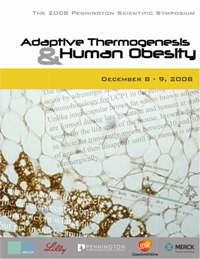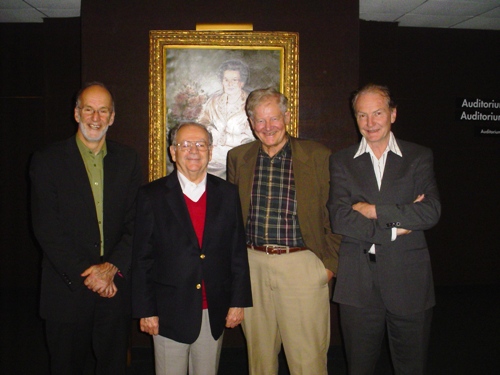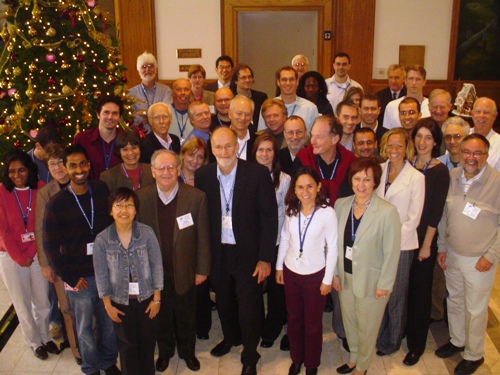Scientific Symposia Series
Adaptive Thermogenesis & Human Obesity
 12/7/2008 - 12/9/2008
12/7/2008 - 12/9/2008
Co-chairs:
Eric Ravussin, Ph.D., Professor, Human Physiology, Pennington Biomedical Research
Center
Jean-Pierre Flatt, M.D., Department of Biochemistry and Molecular Biology, University
of Massachusetts Medical School, Worcester, Massachusetts
Claude Bouchard, Ph.D., Professor, Human Genetics, Pennington Biomedical Research
Center
Program Description:
Adaptive thermogenesis describes nutrition, exercise, cold, or drug-induced changes
in resting energy expenditure that exceed changes in energy expenditure elicited by
the thermic effect of food, the energy cost of exercise, adaptation to cold, or changes
in the size of the body’s organs
Among the questions that were addressed at the Symposium, the following were emphasized:
- Is there adaptive thermogenesis in humans?
- What is the magnitude of human adaptive thermogenesis?
- What are the causes and mechanisms of adaptive thermogenesis?
- Can adaptive thermogenesis be enhanced?
- Is adaptive thermogenesis of clinical significance for human obesity?
Background:
The Scientific Symposia Series was established in 2002 to attract world-renowned scientists
to the Pennington Biomedical Research Center , to allow them the opportunity to interact
and synthesize knowledge in selected areas of nutrition and preventive medicine research.
Scientific Symposia are coordinated by the Division of Education at the Pennington
Biomedical Research Center in conjunction with funding provided by the Pennington
Foundation and other private resources. The Pennington Biomedical Research Foundation
provides Pennington Biomedical Research Center with vital funding for this education
series as well as for nutrition-based research that aims to curb the epidemic of obesity
and prevent premature death from chronic diseases.




